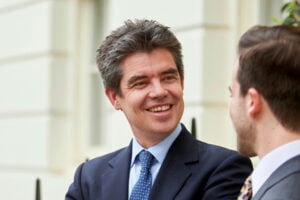Alexander Booth KC > Francis Taylor Building > London, England > Barrister Profile
Francis Taylor Building Offices

FRANCIS TAYLOR BUILDING, INNER TEMPLE
LONDON
EC4Y 7BY
England
- Set Profile
- Go to...
Alexander Booth KC

Work Department
Planning
Environment
Infrastrcture
Compulsory Purchase and land Valuation
Position
Alexander Booth KC has a practice which encompasses all aspects of planning, infrastructure and compulsory purchase law. He regularly appears on behalf of private and public bodies in Examinations, Public Inquiries, the High Court and the Lands Tribunal; he has also appeared in the Court of Appeal and the Supreme Court. Overseas he advises clients in Commonwealth jurisdictions where his experience includes having successfully brought judicial review proceedings in the Turks and Caicos Islands and acting for the Government of Bermuda in both compensation and constitutional litigation.
He is regularly instructed in connection with nationally significant infrastructure development. In which context he promoted the Thames Tideway Tunnel on behalf of Thames Water as junior counsel, and since taking silk he has promoted a number of Development Consent Order applications, including the Northampton Gateway and West Midlands Strategic Rail Freight Interchanges, the Riverside Energy Park, and Esso’s Southampton to London aviation fuel pipeline.
He is also instructed in respect of a broad spectrum of development promoted pursuant to the TCPA 1990, including residential, commercial and energy related schemes. In this regard he regularly appears in Section 78 and Local Plan proceedings, on behalf of a range of developer and planning authority clients. Areas of particular focus include housing, heritage and minerals & waste operations. Recent instructions have included promotion of major residential development in Manchester, restoration and hotel-based regeneration of the Grade II* Listed Whitechapel Bell Foundry in London, and securing approval for mineral extraction and waste deposition operations in Surrey.
As regards compulsory purchase, he has extensive experience and has successfully sought CPO powers in various different contexts; these include infrastructure (pipe lines and highways) and regeneration (both commercial and residential). In addition, he regularly appears for landowners (both corporate and individuals) resisting compulsory purchase orders. Current instructions include the promotion of a series of compulsory purchase orders for regeneration of housing estates in London Borough of Merton and a road improvement scheme on the A40 in Oxfordshire.
He also specialises in valuation/compensation proceedings arising out of compulsory purchase. In this regard he acted for the GLA in a series of references to the Tribunal concerning the compulsory acquisition of land for the London 2012 Olympics, and for claimants in a number of references relating to the acquisition of land for both Crossrail and Thameslink. He is currently advising a range of claimants in respect of proceedings related to HS2, and a number of acquiring authorities including National Highways and Transport for London.
Parliamentary work includes acting for parties petitioning against HS2, both in the Commons and in the Lords, and bringing proceedings pursuant to Special Parliamentary Procedure in respect of a contested Development Consent Order.
Career
Called 2000; QC 2016; Middle Temple.
Memberships
Planning & Environmental Bar Association
Compulsory Purchase Association
National Infrastructure Planning Association
Education
Sedbergh School
Christ Church, Oxford (Ancient and Modern History 2(1))
City University (Dip Law)
Leisure
Cricket, tennis, bridge, chess.
Lawyer Rankings
London Bar > Planning
(Leading Silks)Ranked: Tier 2Alexander Booth KC – Francis Taylor Building ‘Alex is one of the best inquiry advocates at the planning Bar. He is tenacious on his feet and forensic in his preparation – a deadly combination if you are against him. He is a team player who works closely and collaboratively with instructing solicitors and the witness team. He is also creative in finding the point in even the most hopeless of cases when needs must.’
